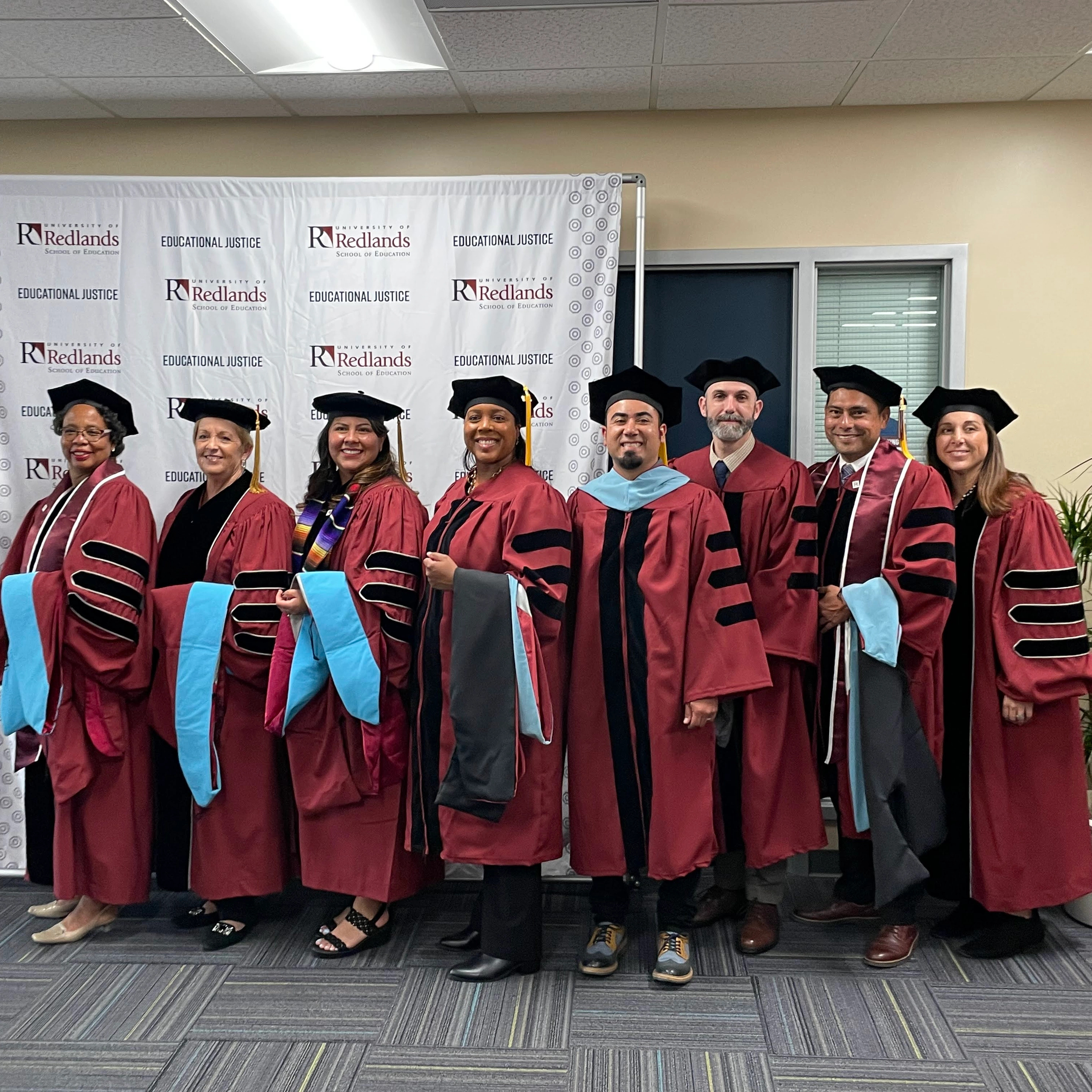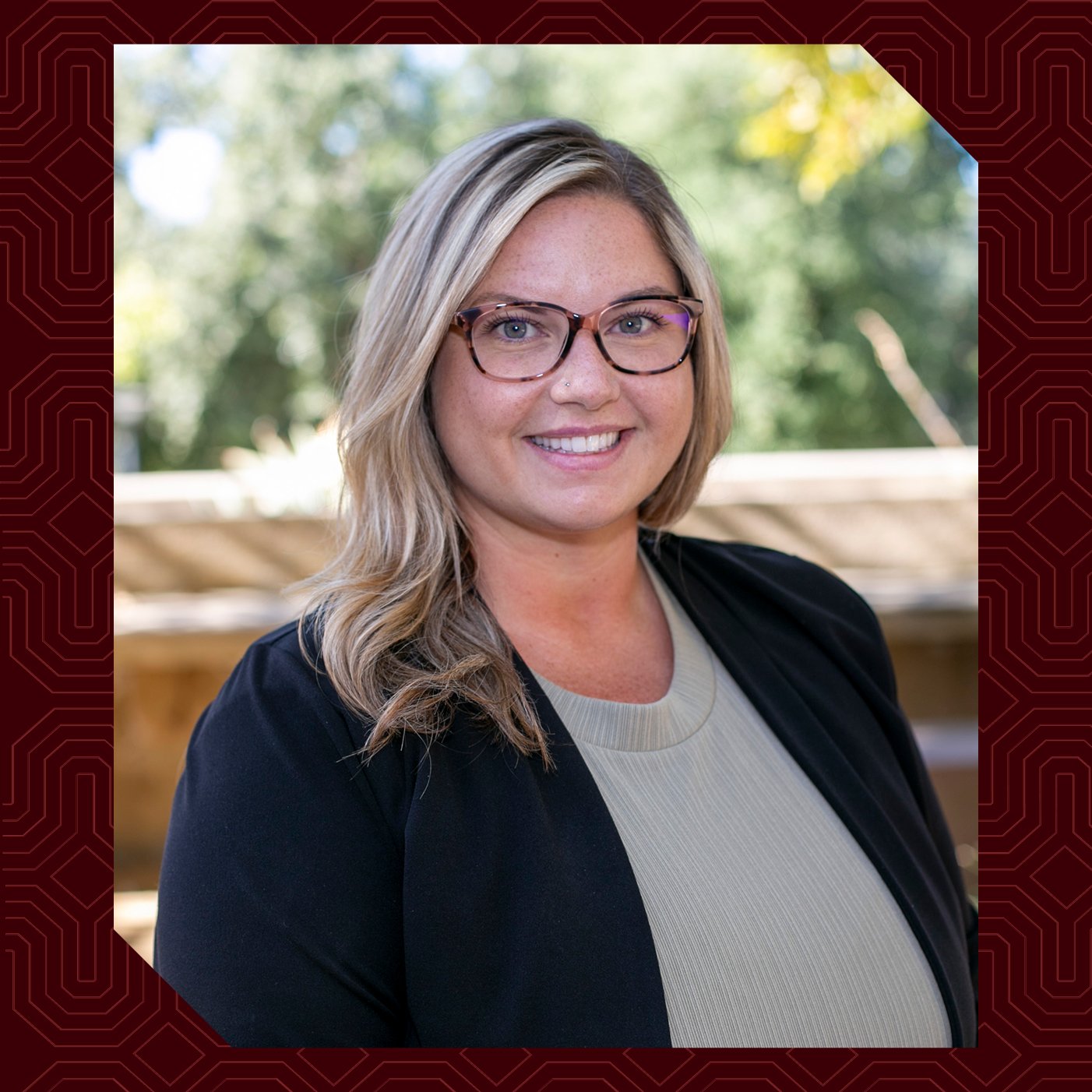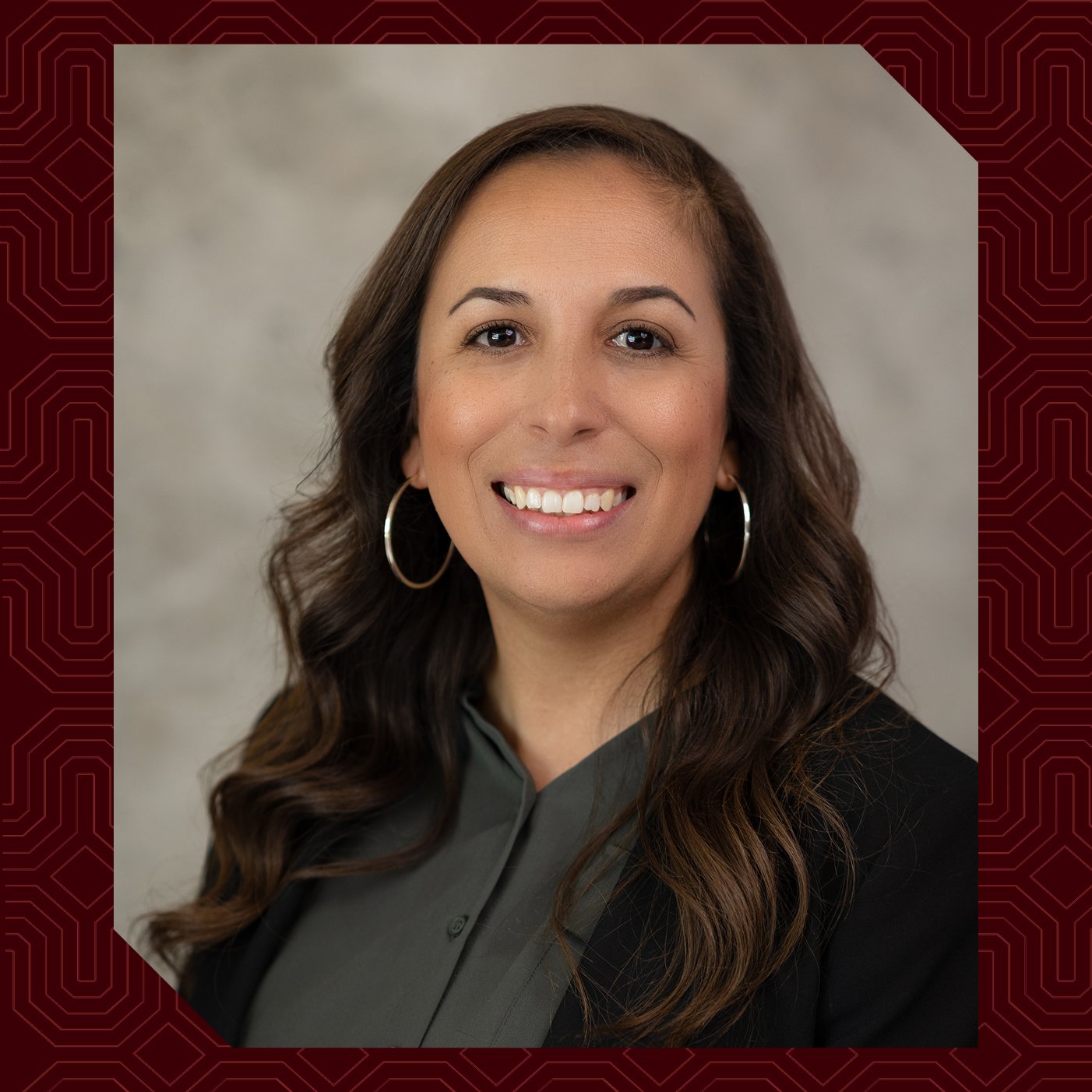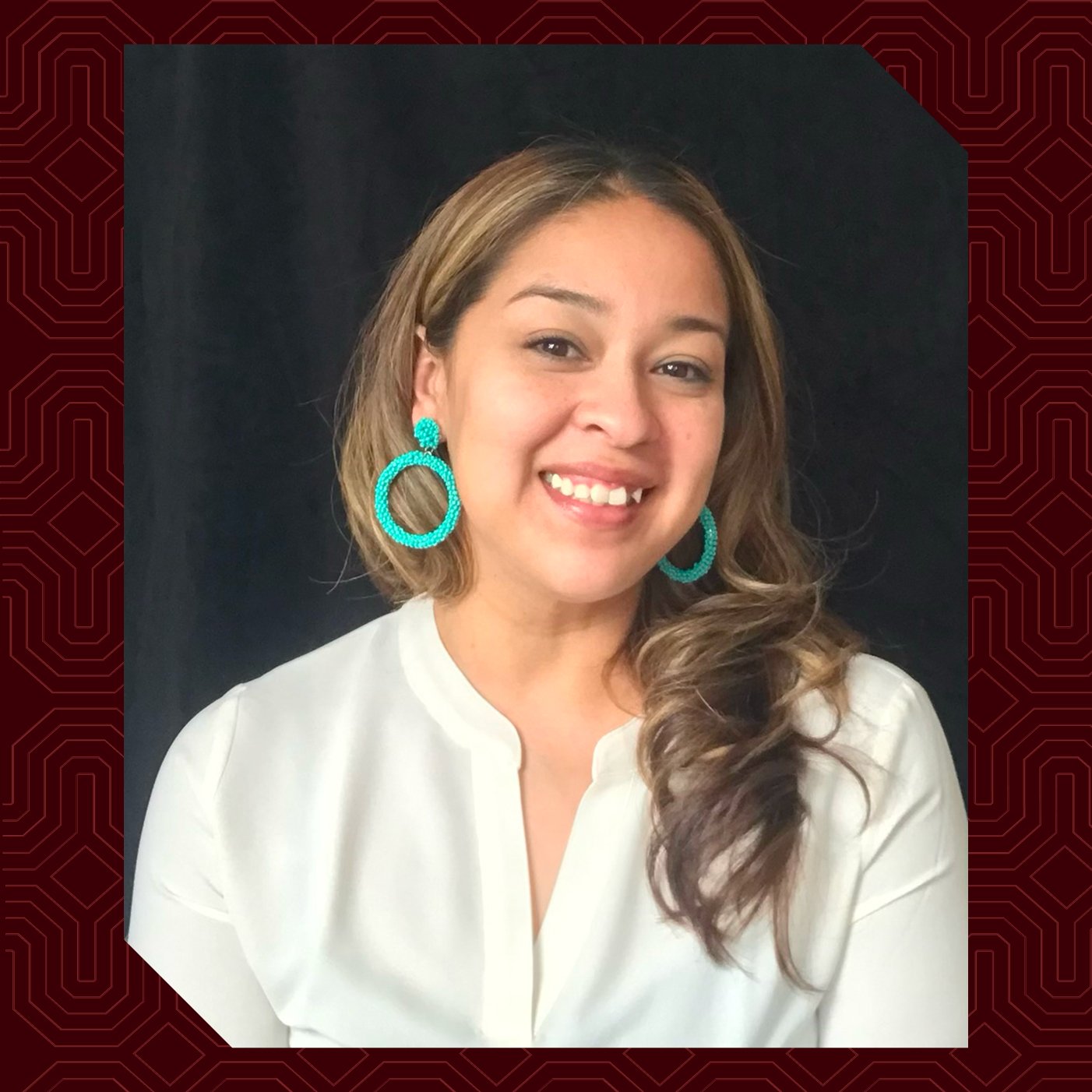Find us on campus
University Hall North

The Ed.D. in Leadership for Educational Justice is a nationally recognized program that prepares you for rewarding leadership roles in education.
Through this program, you'll learn to recognize varying levels of social and educational inequity and how to serve as an advocate for disenfranchised and under-served students, resulting in personal and professional empowerment.
As a candidate, you'll be encouraged to analyze, debate, and develop productive strategies in response to educational justice principles and challenges and opportunities for equity. You'll consider five concentration options for specialization, allowing you to become an informed educational leader who actively works to develop ideas and expressions of social justice across educational systems.
A leader in delivering educational excellence for nearly 100 years, U of R's School of Education Ed.D. program continues to transform students, like you, into educational leaders in California and across the country. The School of Education's strong commitment to educational justice is evident throughout each course, and the enriching and inclusive degree program trains you to become a well-rounded practitioner in today's diverse, challenging, and ever-evolving educational landscape.
Redlands mission-focused Ed.D. degree program is nationally recognized for its small cohort sizes, rigorous study, debate, research, and practice. Focused on addressing social and educational inequity, you'll develop as a scholarly practitioner who is sought after for leadership roles in schools, public service, and higher education institutions. Through this one-of-a-kind program, you'll develop the skills and deep understanding of educational justice required to create real change in the school systems and other educational institutions—a change that makes a lasting impact on the lives of those who matter most: the students.
The doctoral program requires 60 credit hours for degree completion, including 21 credits of core content coursework, 15 credits of concentration coursework, 9 credits of methods coursework, and 15 credits of dissertation work.
Designed for working educators, this flexible doctoral degree includes evening and weekend classes for students determined to earn a degree without compromising their careers. The program can be completed in 3 to 4 years—research included.
To view specific classes, program requirements, and coursework information, visit the current university catalog.
The Ed.D. in Leadership for Educational Justice program offers 4 concentrations for educators to tailor their degree to their interests and professional goals. Concentration coursework (15 credits) is broken out below.
For aspiring higher education professionals, this concentration in Higher Education and Student Affairs (15 credits) exposes students to the social, cultural, and organizational contexts of higher education, theories of leadership and student development, and discussion of current issues.
Students in this concentration will select five content courses from the Higher Education and Student Affairs program. For course descriptions, please view the most recent university catalog.
For aspiring Pre-K-12 leaders who do not yet have a Preliminary Administrative Services Credential this concentration in School and District Leadership with an embedded Preliminary Administrative Services Credential (PASC) provides candidates with the opportunity to expand on their leadership skills in a deep and meaningful way, meet the state standards for educational leadership, engage in meaningful fieldwork in education administration, and complete the state performance assessment for education leaders (California Administrator Performance Assessment - CalAPA).
In this five-course series, students engage in a deep dive into program evaluation and assessment; education law, finance, and personal management; coaching and teacher development; and, applied leadership skills in leadership labs. For course descriptions, please view the recent university catalog.
For school leaders and teachers who want to foster partnerships and collaborations between schools and communities for the benefit of all stakeholders this concentration in Community Engaged Leadership in Schools and Society (15 credits) provides candidates with opportunities to explore the power and promise of community-embedded approaches to social change.
Students in this concentration will take five courses examining the role of educational leaders in promoting democratic participation in K-12 schools and communities. For course descriptions, please view the recent university catalog.
For leaders in the community who want to create their own program this specialized concentration (15 credits) provides a lot of choice and is intended to allow students to take a range of graduate courses, as per their interests. Students should discuss possible choices with their advisor or dissertation chair. For course descriptions, please view the recent university catalog.
One course each term is in a hybrid format, other courses are face-to-face. In the Ed.D. program, hybrid courses meet in-person on the Redlands campus for at least 50% of the class meetings. The remaining class sessions are facilitated via a synchronous online modality.
Undergraduate Program
| Program | Credits | Cost Per Credit | Tuition Total |
| Bachelor of Arts in Education Studies: Elementary Education with Multiple Subject Teaching Credential | 60 | $578 | $34,680 |
Department of Teaching & Learning
| Program | Credits | Cost Per Credit | Tuition Total |
| Master of Arts in Education, Learning and Teaching with Single Subject, Multiple Subject, Special Education, or Dual Credential | 36 or 39 with Internship | $905 | $32,580/$35,295 |
| Preliminary Teaching Credential, Multiple or Single Subject | 30 or 33 with Internship | $905 | $27,150/$29,865 |
| Preliminary Teaching Credential, Education Specialist | 30 or 33 with Internship | $905 | $27,150/$29,865 |
Department of Counseling & Human Services
| Program | Credits | Cost per Credit | Tuition Total |
| Master of Arts in Clinical Mental Health Counseling | 60 | $905 | $54,300 |
| Master of Arts in Education, School Counseling (K-12) Track - *with or without Pupil Personnel Services Credential | 48 | $905 | $43,440 |
| Master of Arts in Education, College Counseling Track | 48 | $905 | $43,440 |
| Master of Arts in Education, School Counseling and College Counseling (Combined) | 54 | $905 | $48,870 |
| Master of Arts in Counseling and Psychotherapy | 40 | $478 | $19,120 |
| Pupil Personnel Services Credential | 42 | $905 | $38,010 |
Department of Leadership and Higher Education
| Program | Credits | Cost Per Credit | Tuition Total |
| Preliminary Administrative Services Credential | 15 | $905 | $13,575 |
| Master of Arts in Education, Higher Education | 36 | $905 | $32,580 |
| Master of Arts in Education, Leadership for Social Justice Specialization | 36 | $733 | $26,388 |
| Doctorate of Education, Leadership for Educational Justice | 60 | $1,249 | $74,940 |
| Doctorate of Education, Leadership for Educational Justice with Preliminary Administrative Services Credential | 60 | $1,249 | $74,940 |
Wellness Fee: $100 per year
Student Service Fee: $5 per term
2025/2026 tuition and fee schedule effective July 1, 2025
In addition to the direct costs identified above, the University estimates a number of indirect costs a student may incur while completing their degree program. The combination of direct and indirect costs creates the student’s cost of attendance, which is used to determine the students financial need and set the maximum amount of financial aid a student can receive for a period of enrollment. Indirect costs include:
A breakdown of your total cost of attendance can be found on your financial aid offer letter in Self-Service Financial Aid.
Priority 1 Deadline: January 15
Priority 2 Deadline: June 1
University Hall North


Most of our graduates engage in our program as professionals working in P-20 educational institutions or adjacent community roles. During the program or upon graduation they leverage what they learn in our Ed.D. for new opportunities or advancement as leaders and administrators in a variety of roles including: Assistant Principals, Principals, Assistant Superintendents, Superintendents, Program Directors, Assistant Dean, and Dean positions. Graduates have also founded consultancies, charter schools, and non-profit educational organizations.




— Demetri Kelley ’26, Ed.D. in Leadership for Educational Justice
— Krysten Audibert ’26, Ed.D. in Leadership for Educational Justice
— Christina Rangel, Ed.D. in Leadership for Educational Justice
— Lisamarie Jordan, Ed.D. in Leadership for Educational Justice

The Leadership and Higher Education department is part of the School of Education. We are dedicated to providing exceptional learning experiences for graduate students in small, personalized educational settings. Our faculty are accomplished professors who work in the areas of leadership, educational administration, and policy. Learn more about all our programs, student resources, and faculty.
Meet 1-2 classes per week
3–4 years, 60 credits
4 different concentrations to choose from
Working educators seeking leadership roles in schools, public service, and higher education institutions
Academic advising, Career & professional development, Extensive alumni network
Admissions - Graduate
Feb
25
Admissions - Graduate
Mar
09
Admissions - Graduate
May
11
Admissions - Graduate
Jun
08
Admissions - Graduate
Sep
14
Admissions - Graduate
Nov
09
Get in touch with our admissions team.